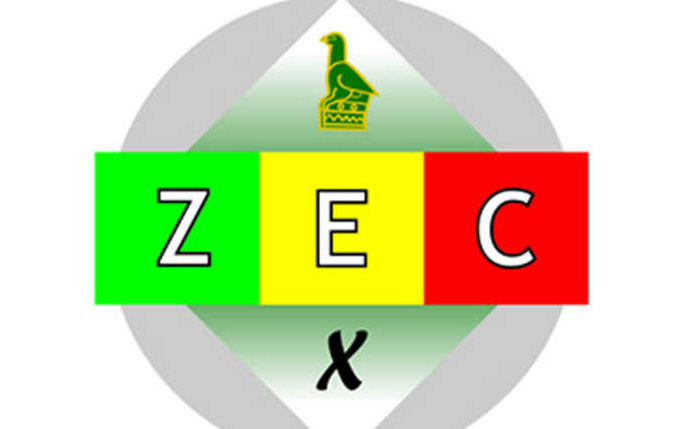Electoral season: Staying ahead of falsehoods


Being proactive in providing information and pre-empting speculation would go a long way in ensuring that ZEC counters false narratives about its operations on social media
Delta Milayo Ndou #DigitalDialogue
One of the drawbacks of the Internet is the ease with which people can create, distribute and defend falsehoods on social media platforms, so as the electoral season comes into full swing — vigilance, independent verification and a healthy dose of scepticism are in order.
Those who are crafting campaign, voter education or other election-related messages will have to work twice as hard to ensure their message reaches the intended audiences in its unadulterated form.
The mere distribution of one’s message will not suffice because in the context of social media-driven conversations any message is susceptible to being digitally distorted by mischievous elements.
A ready example is a Fadzayi Mahere campaign poster that was digitally altered to distort the original campaign message to one that mocked the MDC-T leader Morgan Tsvangirai.
The problem with the distortion of messages is that it is viewed as a prank, something fun and harmless to do — something intended to generate a few laughs, some retweets and a few seconds of social media fame.
In the context of elections such ‘pranks’ come at a high cost for those attempting to communicate a clear message to their targeted constituency and so it is up to the readers to exercise vigilance in terms of what information they choose to believe — and spread.
It would be refreshing if those that love sharing unverified information shouldered some responsibility for the content they were spreading by at least issuing disclaimers and disclosing that they cannot vouch for the veracity of the information they are sharing.
Such small practices are things that make a whole lot of difference in helping to stay ahead of falsehoods. Be bold enough to say “I am sharing this because I think it is interesting/funny/scandalous but I honestly don’t know if it is true or not”.
Issuing a disclaimer challenges the person reading/seeing that content to seek independent verification on their own and to be responsible for what information they place their trust in.
Counter-narratives amidst falsehoods
The extent to which one is able to refute falsehoods online is determined, in part, by their visibility/prominence on social network platforms and also their ownership/use of platforms that they have total control over where their unadulterated message can be found.
It is easier, in my view, to drive a counter-narrative by having a central online platform where you can refer audiences to for the correct information/position on a contested narrative or issue.
I said as much to one of the Zimbabwe Electoral Commission (ZEC) Commissioners, who had revealed that it was exhausting to have to refute silly fabricated stories in the media on a daily basis.
Speculative stories abound in an electoral season where narrative contestations are heightened; so it would indeed be fatiguing to expend energy on rebuttals when the record can be set straight once and for all by simply having an updated website to direct stakeholders to.
The ZEC website, in its current state, is the most underutilised counter-narrative tool available to the somewhat beleaguered commission. “Falsehoods and negative perceptions that ZEC rigs elections thereby reducing the stakeholder confidence in the electoral process” is listed on the ZEC website as one of Commission’s top three challenges (in relation to its operations, as well as preparations for 2018).
Being proactive in providing information and pre-empting speculation would go a long way in ensuring ZEC counters false narratives about its operations.
By having an updated website, where any and all stakeholders can access information on any aspect of the electoral process, ZEC might at least gain stakeholder confidence through clear and transparent communication channels.
A badly packaged biometric voter registration (BVR) explainer video went viral a few weeks ago, featuring the ZEC logo and masquerading as a ZEC product — which one ZEC Commissioner disowned.
Ideally, an up-dated ZEC website with the right information and accurate data would be the first port of call for civil society organisations (CSOs) and Trusts, whose functions include voter education so that they base their material on content provided by the Commission.
Information tends to be disseminated to the electorate in a highly paternalistic manner as if the public were minors, who cannot be trusted with serious information at one go — so it is given out in morsels.
While it is important for ZEC to carefully craft messages for the consumption of the public, there is need to be proactive in pre-empting frequently asked questions and having responses on the website for the benefit of digital audiences.
Maintain a healthy scepticism
As the number of pranksters increase, more memes and digitally altered messages are manufactured online. Some of these are genuine pranks and others are driven by malicious intent.
Since the peddling of falsehoods will not abate, the only thing one can do is to maintain a healthy measure of scepticism when receiving information that has not been verified.
This might actually be hard to do if the false information strongly resonates with you or confirms a belief that you already have, i.e., confirmation bias. Be aware of your own prejudices and be vigilant about the sources you trust for information because you might end up with egg on your face after sharing fake news.
What makes online falsehoods so potent is that they feed from popular discourses and malign those who are already perceived as villains. Moreover, culprits can hide behind anonymity or use pseudonyms to conceal their real identity and act with impunity.
Wherever possible, electoral institutions, parties, CSOs or candidates should work on having a central online platform where their unadulterated messages can be found — and also have digital advocates, who can correct misconceptions about them on social networks.
- Delta is a digital evangelist who believes in technology-driven solutions. Follow her on Twitter: @deltandou






Comments